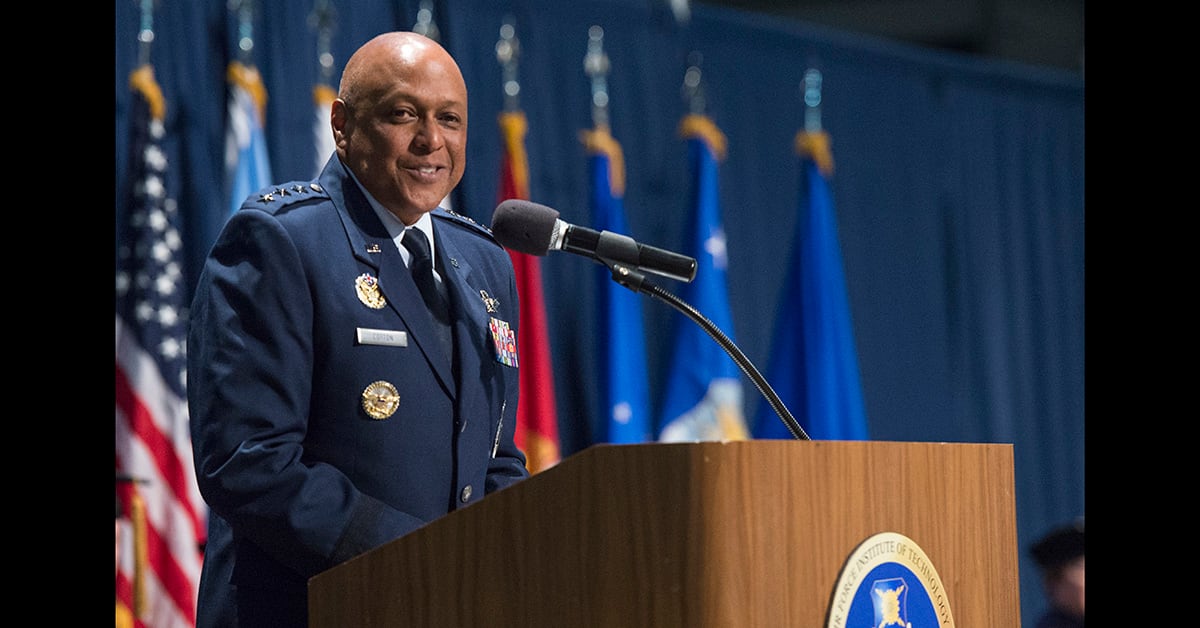American students deserve the freedom and opportunities to learn, grow, and flourish in ways and in places that work for them. Yet, while our service members fight for our freedoms abroad, too many military families are denied education freedom at home.
As an Army brat and retired brigadier general, I understand how military children serve our country along with their parents. They face unique challenges other American families do not. When my father served, I attended 10 public schools in 12 years, including three high schools. Some schools met my needs, while others did not. One aspect of my education remained the same — my family had little power to choose where I learned best.
In 1983, President Ronald Reagan’s National Commission on Excellence in Education report, “A Nation At Risk," stated: “If an unfriendly foreign power had attempted to impose on America the mediocre educational performance that exists today, we might well have viewed it as an act of war. As it stands, we have allowed this to happen to ourselves.” Nearly three decades later, the Council on Foreign Relations commissioned a report, “US Education Reform and National Security,” which described American education as being plagued by “a sclerotic bureaucracy, lack of incentive for innovation, and few rewards for excellent teaching.”
Sadly, despite enormous increases in taxpayer spending and ever-expanding school staff, American education still isn’t working for too many students. Here are the facts:
- Globally, America’s 8th graders rank 24th in reading, 25th in science, and 40th in math.
- On “the Nations Report Card,” about two out of three 8th graders aren’t proficient in core subjects.
- Thirty percent of high school graduates are not able to pass the armed forces entrance exam.
Beyond impairing military recruitment, a lack of education freedom hurts military retention. Recently, the commanding general of one of the Army’s largest training installations told me he was having difficulty recruiting drill sergeants due to the poor local schools. In fact, 40 percent of respondents recently told the Military Times that they “have either declined or would decline a career-advancing job at a different installation to remain at their current military facility because of high performing schools.” Thirty-five percent said that dissatisfaction with their children’s education was a “significant factor” in their decision to remain in or leave military service.
RELATED

It’s a story I’ve heard over and over again, and it is unacceptable. Our servicemen and women should never have to turn down great jobs or leave the military because their children’s government-assigned school isn’t working. Education freedom for military families is both a moral right and a matter of national security.
Service families want and need access to more high-quality opportunities — more education freedom. We know military parents home-school their children at a higher rate than the rest of Americans. And a recent poll of active-duty military service members, veterans, and their spouses found overwhelming support for student scholarships like education savings accounts, vouchers, and tax-credit scholarships.
So, it’s time we put our service members and their children first. This administration’s $5 billion Education Freedom Scholarships proposal will empower students to learn and thrive. This historic investment in students doesn’t “divert” a single dollar from public school students or teachers. Scholarships would be funded through voluntary donations from individuals and businesses. Donations would be made to non-profit organizations that provide scholarships and donors would receive a dollar-for-dollar federal tax credit.
Just a few ways families could use scholarships for their children include earning college credit or an industry certification in high school; taking advanced, remedial, and elective courses delivered online by world-class instructors; receiving special education services and therapies; choosing a private or home education; and participating in summer and after-school education programs.
For the first time, military families who don’t have the option to move to a highly-ranked school district or enroll in a private school will have the freedom that wealthy families have always had.
As a military child, military parent, and educator, I know all families want their children to succeed. That starts with the best possible education. For America to lead, from the classroom to the international stage, American families, especially our military families, need education freedom.
Mitchell M. Zais, Ph.D., is the deputy U.S. secretary of education and the former state superintendent of education for South Carolina. He was a college president for 10 years and commissioner of higher education for six years. He retired from the Army as a brigadier general after 31 years of active duty.





